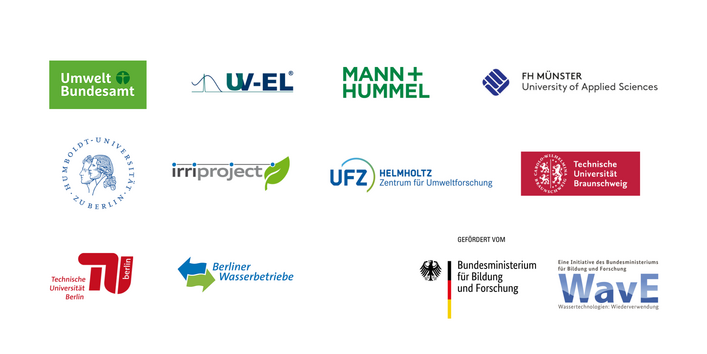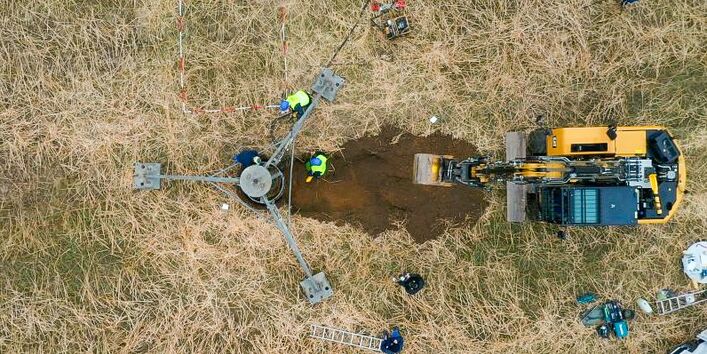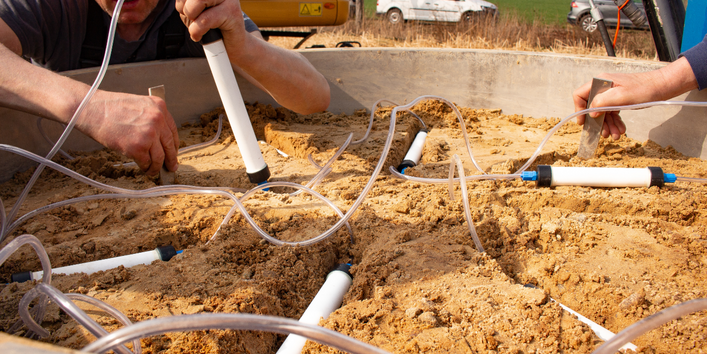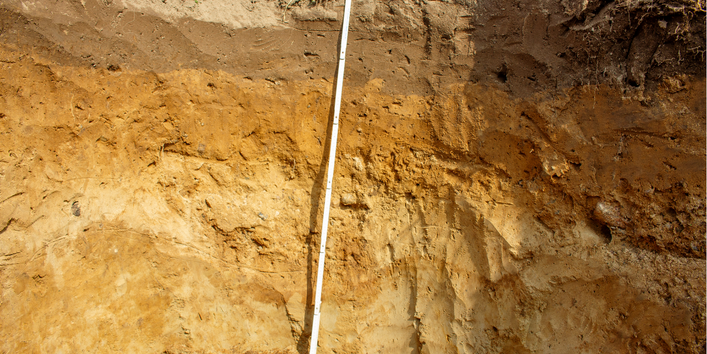In the research project PU2R (Point-of-Use Re-Use: Decentralized agricultural reuse of municipal wastewater to reduce competition for water), the decentralized treatment and reuse of domestic wastewater for the irrigation of plants is investigated in both field and laboratory experiments by seven research institutes and companies in cooperation with the German Environment Agency.
Climatic changes are increasingly causing acute regional water shortages which can lead to competition for water, for example between drinking water supply and agricultural irrigation. Decentralized reclamation of domestic wastewater and its use for agricultural irrigation can relieve pressures on natural water resources by using treated wastewater as a valuable resource directly on site. With demand-oriented treatment including disinfection, risks to humans and the environment due to pathogens or chemical pollutants should be prevented.
As part of PU2R, domestic wastewater collected in drainless septic tanks in Brandenburg is used for agricultural irrigation following treatment with a mobile treatment plant. Extensive chemical and microbiological analyses serve to detect potential risks to humans, the environment, and the irrigated crops. In supplementary laboratory and lysimeter experiments, transport and reaction processes are investigated and used for site-independent modeling.
In combination with further data collection and dialogue processes, the research in PU2R forms an important basis for quantifying the potential of decentralized water reuse in Brandenburg and in other national and international regions. The comprehensive research activities enable a scientific assessment of potential risks and a derivation of necessary requirements and measures for risk management which, may exceed the minimum requirements of the EU regulation on water reuse.
Funding: Federal Ministry of Education and Research
Project duration: February 2021 till January 2024
Partners:
- Münster University, Institute for Infrastructure, Water, Resources, Environment (IWARU), contact: Prof. Dr. Jens Haberkamp (haberkamp@fh-muenster.de)
- Humboldt Universität Berlin, Plant Nutrition and Fertilization, contact: Prof. Dr. Christof Engels (christof.engels@agrar.hu-berlin.de)
- Helmholtz-Centre for Environmental Research GmbH – UFZ, Department of Analytical Chemistry, contact: Prof. Dr. Thorsten Reemtsma (thorsten.reemtsma@ufz.de)
- Ingenieurbüro Irriproject, contact: Dirk Borsdorff (iww@irriproject.com)
- MANN+HUMMEL Water & Fluid Solutions, contact: Hannah Parsley (h.parsley@microdyn-nadir.com)
- UV-EL GmbH & Co. KG, contact: Dr. Andreas Meyer (ame@uv-el.de)
Associated partners:
- Technische Universität Berlin, Specialty Area of Water Quality Engineering
- Berliner Wasserbetriebe, F&E, contact: Dr. Alexander Sperlich (alexander.sperlich@bwb.de)




